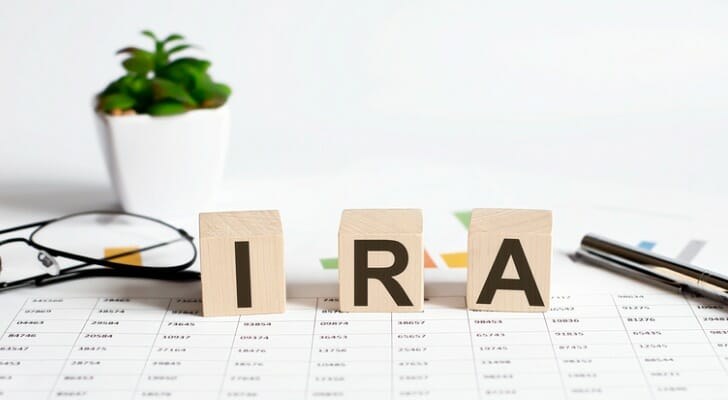Retirement savers are no longer limited to traditional assets like stocks, bonds and mutual funds. Instead, they can now invest in cryptocurrency through self-directed individual retirement accounts known as Bitcoin IRAs. Despite carrying the moniker of the world’s first and largest cryptocurrency, Bitcoin IRAs can invest in a variety of cryptocurrencies, including Ethereum, Cardano, Litecoin and Ripple. A financial advisor could help you plan for retirement and determine whether cryptocurrencies should be part of that plan.
What Is a Bitcoin IRA
Bitcoin IRAs are self-directed retirement accounts that combine the tax advantages of conventional IRAs with the growth potential of cryptocurrencies. Because cryptocurrencies are considered alternative investments, they aren’t available within traditional retirement accounts like IRAs and 401(k)s. However, a self-directed IRA gives the investor the control and flexibility to invest in alternative assets like Bitcoin.
As cryptocurrencies have surged in popularity in recent years, companies and platforms have begun offering Bitcoin IRAs to investors looking to incorporate digital assets into their retirement savings. However, they are not available through traditional financial service companies, like Fidelity and Schwab, so you’ll have to find a platform that specializes in this type of account.
Reasons to Invest in a Bitcoin IRA
As mentioned above, Bitcoin IRAs allow retirement savers to invest in cryptocurrencies while taking advantage of the tax benefits that make conventional IRAs and 401(k)s popular vehicles. Like their more conventional counterparts, Bitcoin IRAs come in the traditional and Roth variety. This means you can choose between deferring taxes on your contributions until you make withdrawals or contributing after-tax dollars to a Roth account and capitalizing on tax-free growth.
Bitcoin and other cryptocurrencies have generated worldwide buzz for massive increases in value since their creation. For example, the price of one bitcoin has increased by over 600% in the last three years alone. Investors who believe digital currencies will play an even bigger role in the future may reduce future tax bills by holding cryptocurrencies in retirement accounts, since the money is not taxed as capital gains.
Bitcoin IRAs also provide investors with a platform to diversify their retirement savings beyond stocks, bonds and mutual funds, since cryptocurrencies are not offered within traditional retirement accounts.
Reasons Not to Invest in a Bitcoin IRA
Yes, many investors have struck it rich with Bitcoin and other cryptocurrencies, but these digital assets are also marked by their extreme volatility. Many of the dramatic price increases have been followed by significant drops in value.
For example, Bitcoin reached an all-time high of $64,899 on April 13, 2021, but lost more than half of its value within months, crashing to $29,796 on July 20. Ethereum, the world’s second-largest cryptocurrency by market cap, has experienced similar volatility. The price of one ether, the native currency of the Ethereum blockchain, skyrocketed to $4,168 on May 11, 2021 after closing out 2020 at just $730. But the massive rally was followed by a steep decline in value that saw Ethereum fall to $1,787 by July 19.
Then again, the volatility of Bitcoin and other cryptocurrencies may serve as an incentive for some investors to keep these assets within an IRA. Because early withdrawals from IRAs (before age 59½) are subject to a 10% penalty, cryptocurrency investors may be less likely to sell their assets during sharp declines in price.
Another significant drawback of Bitcoin IRAs are the fees associated with setting up and maintaining an account. Platforms may charge an account setup fee, monthly or yearly custodial fees, as well as transaction fees when assets are bought and sold. Bitcoin IRA platforms are not particularly transparent when it comes to their fee structures. Some platforms do not publish fees on their websites, adding an extra layer of research for potential customers. Depending on the platform and size of the account, Bitcoin IRA fees may outweigh the potential tax benefits associated with an account.
An additional pitfall to consider is the rapid evolution and expansion of the cryptocurrency industry. The hot new cryptocurrency you invest in today could be supplanted by another by the time you’re ready to withdraw your money. For this reason, you’ll need to pay close attention to the cryptocurrency market as a whole, future regulatory developments and any other news that affects the coins in your portfolio. While it is possible to sell assets within your IRA and buy new coins, you’ll need to play an active role in the management of your account.
How to Invest in a Bitcoin IRA
If you opt to invest in cryptocurrency through a Bitcoin IRA, you’ll want to take several important steps to find a platform that suits your needs. First, consider the security offered by the platform and whether your savings are insured. Platforms like Bitcoin IRA and BitIRA insure up to $100 million in savings, with the latter also providing cold (offline) storage.
You’ll also need to decide which cryptocurrencies you want to have in your IRA. While Bitcoin is widely accessible, lesser coins may not be available on all platforms. Also keep the fees of each platform in mind. While it may take extra effort to track down the fees charged with individual platforms, the legwork could save you considerably in the end.
Lastly, consider whether a particular Bitcoin IRA platform requires an account minimum. Coin IRA, for instance, requires a minimum of $25,000 to open an account. As little as $1,000 is needed to open a Bitcoin IRA on other platforms.
Bottom Line
Bitcoin IRAs are self-directed retirement accounts that allow investors to incorporate Bitcoin and other cryptocurrencies into their retirement savings. These accounts blend the tax advantages of conventional IRAs and 401(k)s with the vast potential of cryptocurrency. However, understand that cryptocurrency is still relatively new and highly volatile, making it a risky investment for retirement. Fees that Bitcoin IRA platforms charge may also outweigh the tax advantages. When opening a Bitcoin IRA, be cognizant of a platform’s security features, fee structures, account minimums and varieties of cryptocurrencies that are offered.
Investing Tips
- Cryptocurrency is considered an alternative investment, but it’s not the only one. Check out SmartAsset’s guide to alternative investments to learn about other assets in this category, the pros and cons of investing in alternative assets and more.
- Need some extra help when it comes to managing your investments? A financial advisor can oversee your portfolio and help you allocate your assets. Finding a qualified financial advisor doesn’t have to be hard. SmartAsset’s free tool matches you with up to three financial advisors in your area, and you can interview your advisor matches at no cost to decide which one is right for you. If you’re ready to find an advisor who can help you achieve your financial goals, get started now.
Photo credit: ©iStock.com/matejmo, ©iStock.com/Iryna Drozd, ©iStock.com/Vertigo3d


